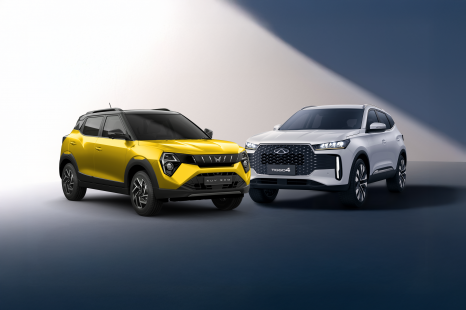

Andrew Maclean
2025 Mahindra XUV 3X0 vs Chery Tiggo 4: Spec battle
1 Month Ago
So there's another new brand for Australia, and its first offering – the Xpeng G6 – shapes as a true contender for electric SUV buyers.
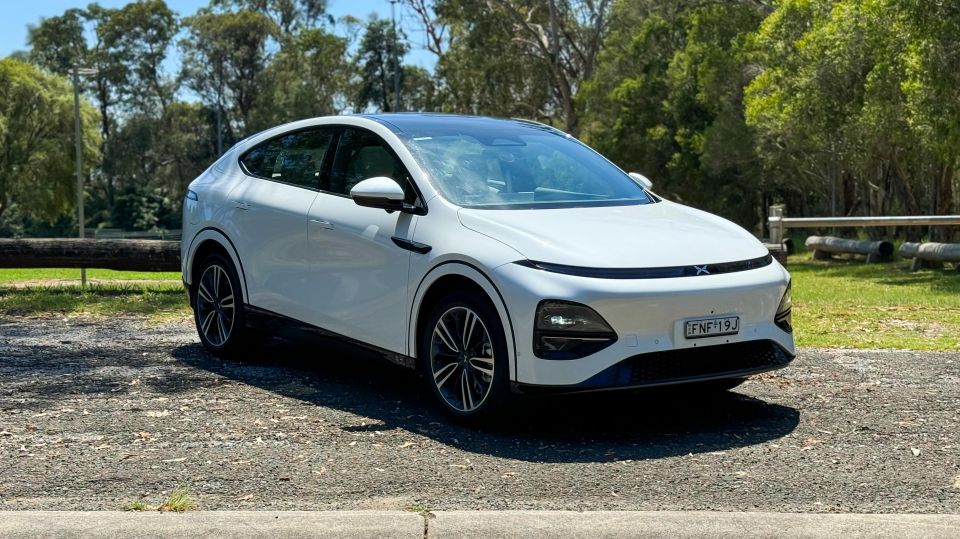
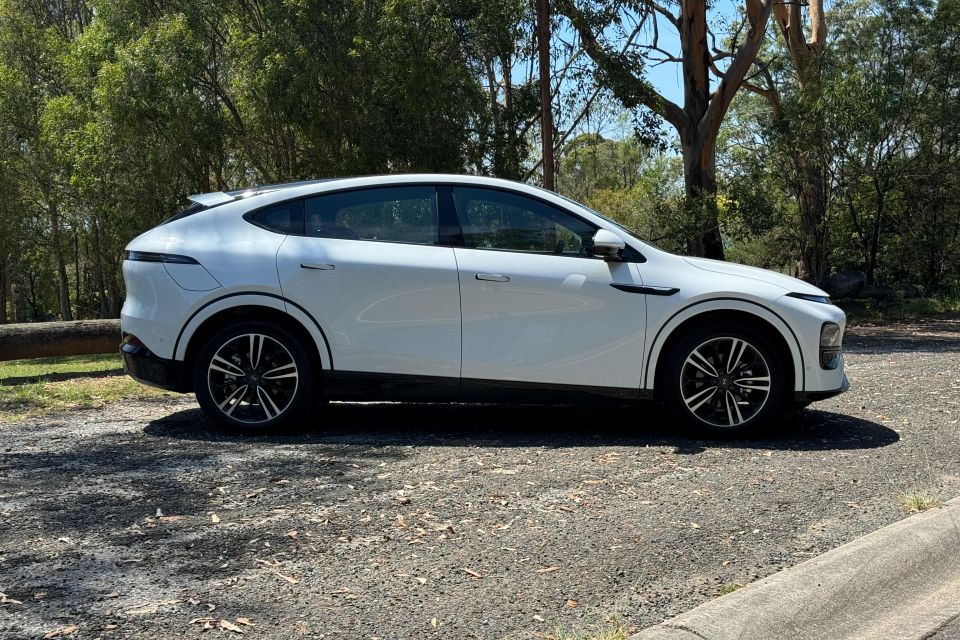

Quickly see how this car stacks up against its competition. Select any benchmark to see more details.
Where expert car reviews meet expert car buying – CarExpert gives you trusted advice, personalised service and real savings on your next new car.
There has been a lot of hype in the world of electric vehicles, especially when it comes to the Xpeng G6 – and with good reason.

It’s one of the more affordable mid-sized electric SUVs on the market, has a huge focus on technology and quality, and a thoughtful cabin design that leaves you wanting for little.
So, is this the best alternative yet to the all-conquering Tesla Model Y? Read on to find out.
There are two versions of the Xpeng G6 available in Australia, and both have single-motor rear-wheel drive configurations.
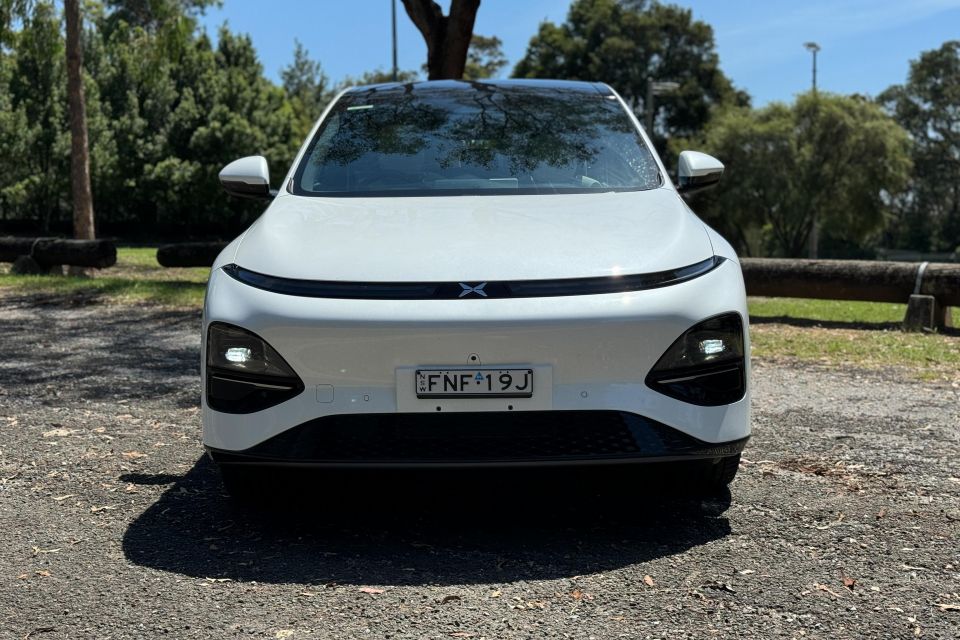
Pricing represents a happy medium between the much more budget-focused Leapmotor C10 and Deepal S07, yet still undercuts big-name rivals like the Tesla Model Y, Kia EV5 and Hyundai Ioniq 5.
| Model | Price before on-road costs |
|---|---|
| 2025 Xpeng G6 Standard Range | $54,800 |
| 2025 Xpeng G6 Long Range | $59,800 |
To see how the Xpeng G6 lines up against the competition, check out our comparison tool
As with all new models that are often called “software defined vehicles”, the Xpeng G6 is connected, updatable, and entirely reliant on its touchscreen media system for day-to-day operation.
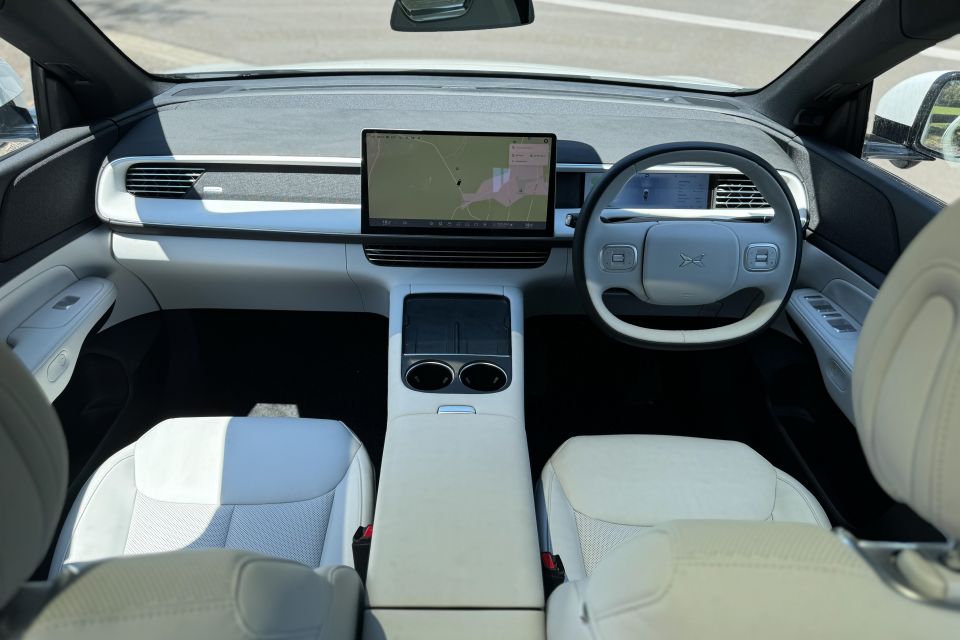
And, unlike some of the others of this ilk, the G6 is actually pretty simple to get your head around.
There are still dozens of menu screens and sub-menus hidden where you might only find them when sitting while waiting for the battery to recharge, but that gives you the ideal opportunity to shuffle through the screens and find what you need.
Thankfully though, this Chinese brand has also paid attention to the ‘there should be a shortcut for that’ ethos, providing a drop-down screen that allows you to easily navigate to controls such as your seat heating and cooling, side-mirror adjustments, and much more.
You will need to spend time finding out where everything is, but I only had this car for a couple of days and after hopping in and out a dozen times over that period, I knew my way around the menus and easily became familiar with how things needed to be used.
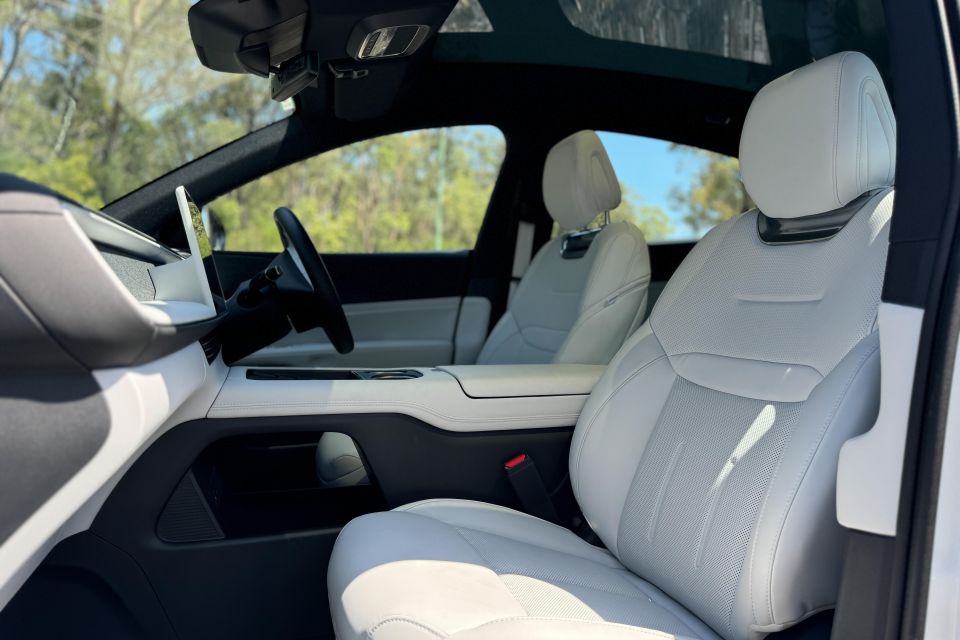
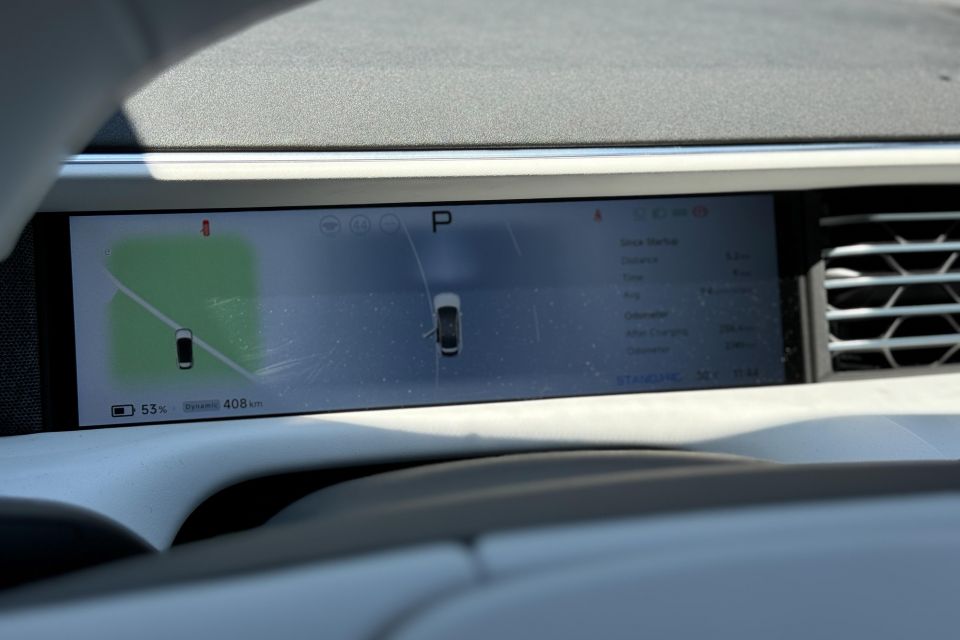
And if you’re like me and just want your phone to connect up without hassle, it’ll do that too, with wireless Apple CarPlay and Android Auto on offer. But there’s also a native navigation system with traffic updates and route planning to include charging stations, and the stereo system has a heap of controls on offer through the screen, too.
There’s a climate control system on screen as well, and – as in a Tesla and many others – you use the display to adjust where the air is flowing, and there’s a touch bar down the bottom of the screen to make quick adjustments to the temperature (and that can be configured with some favourites, too).
You will also need to learn how to use the steering wheel controls, which can be used to adjust the fan speed and temperature (using the left scroller and buttons), and those controls are also used for the cruise control system when it’s engaged.
The right-side buttons are for media controls, and if you hold down the scroll wheel on either side, you can adjust what’s on display in front of the driver.
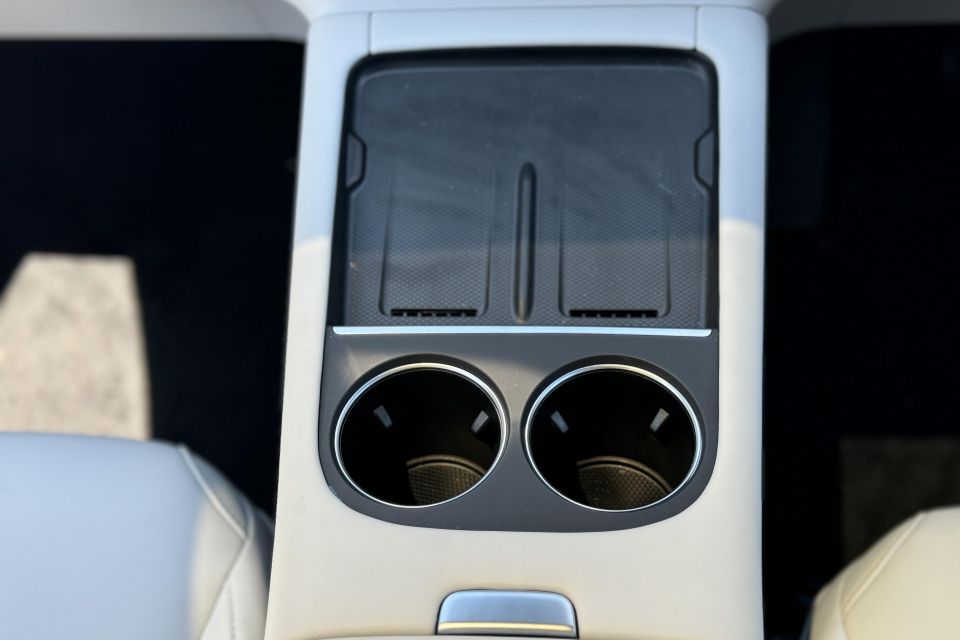
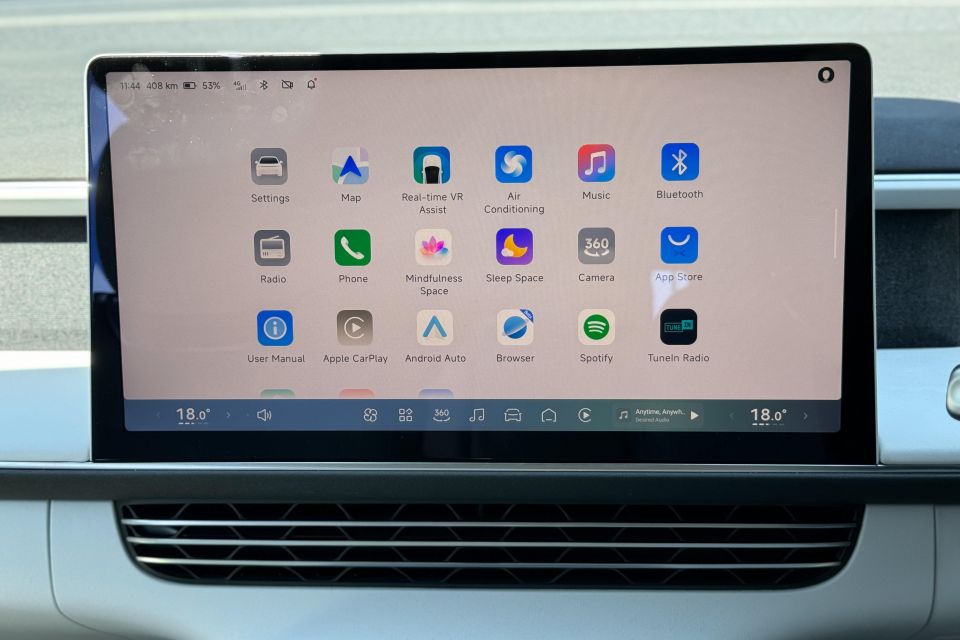
And the cruise control? It’s part of the right-hand stalk, which is your gear selector… again, like a Tesla. Tap down once in D to engage adaptive cruise, twice to get it into the more advanced smart adaptive cruise control system with steering assistance.
That means, yes, that your left stalk is for wipers and blinkers, and has a high-beam function too, but there are other lighting controls on screen – so best just leave it in auto and let the car do the work.
The cabin is a tidy and clever design, with a big pair of cupholders, a large centre console area which is bigger than the usual because there’s no glovebox, and a pair of wireless phone chargers with ventilation so your phone shouldn’t melt. In the doors there are large pockets with bottle holders, too.
And seat comfort and adjustability is great. There is reach and rake adjustment for the steering wheel, and the big glass roof doesn’t make the cabin too hot – plus, if you want it, there’s an accessory option for a fold-up cover that shields the cabin even further.
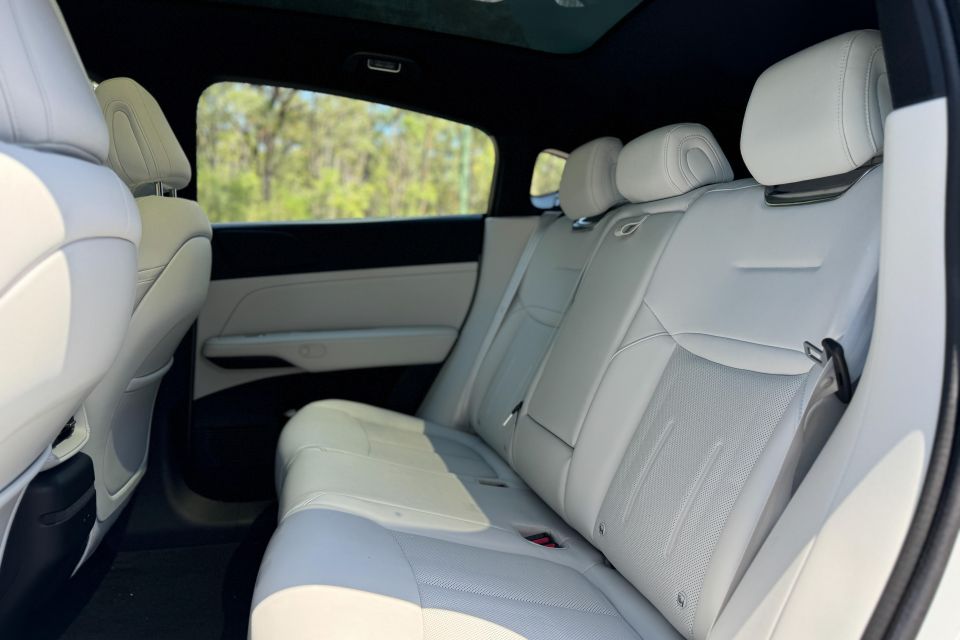
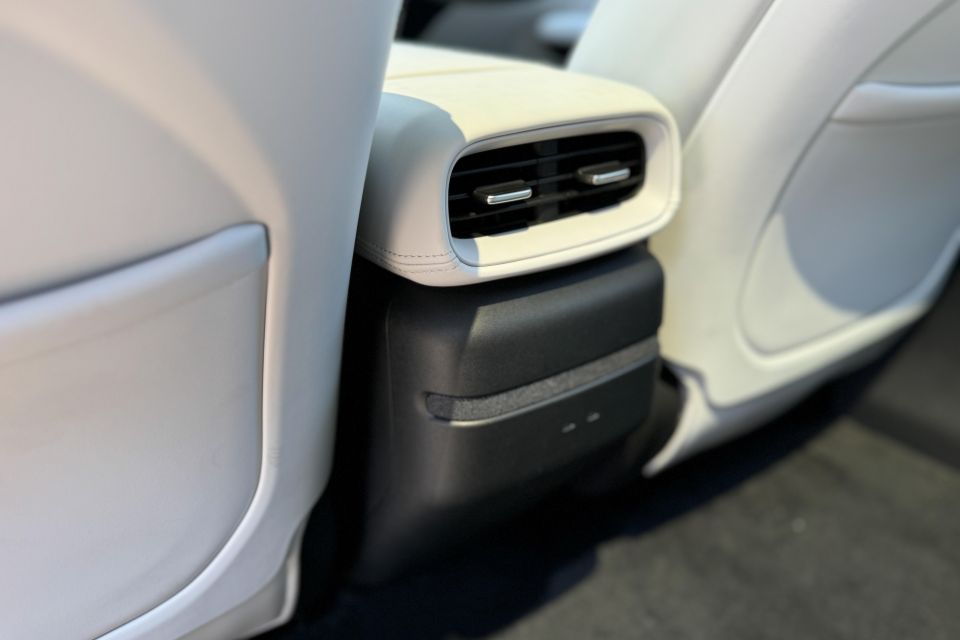
Rear seat space is excellent, despite the fact this car looks like a coupe-style SUV. That’s deceptive, really, because the roofline is actually higher than the body panel paint suggests, and someone my size – 182cm or 6’0” – can fit in comfortably with headroom to spare.
There’s also ample leg and toe room, and it’s not too much of a knees-up position, as is the case in some other EVs. And with a flat floor and a roomy seat, you can fit three adults across the rear bench if you need to.
If you’ve got smaller, younger occupants, there’s a set of ISOFIX child-seat anchor points in the window seats and three top-tethers, too. And the lack of a glovebox up front means the front passenger seat should easily be able to fit a rearward-facing child seat. There are lights in the back, too, which is becoming increasingly novel.
The seatback offers a level of recline to it, and it’s a cushy cushion, too. There are soft finishes throughout, and a flip-down arm-rest with pop-out cupholders, not to mention bottle holders in the doors and map pockets as well.
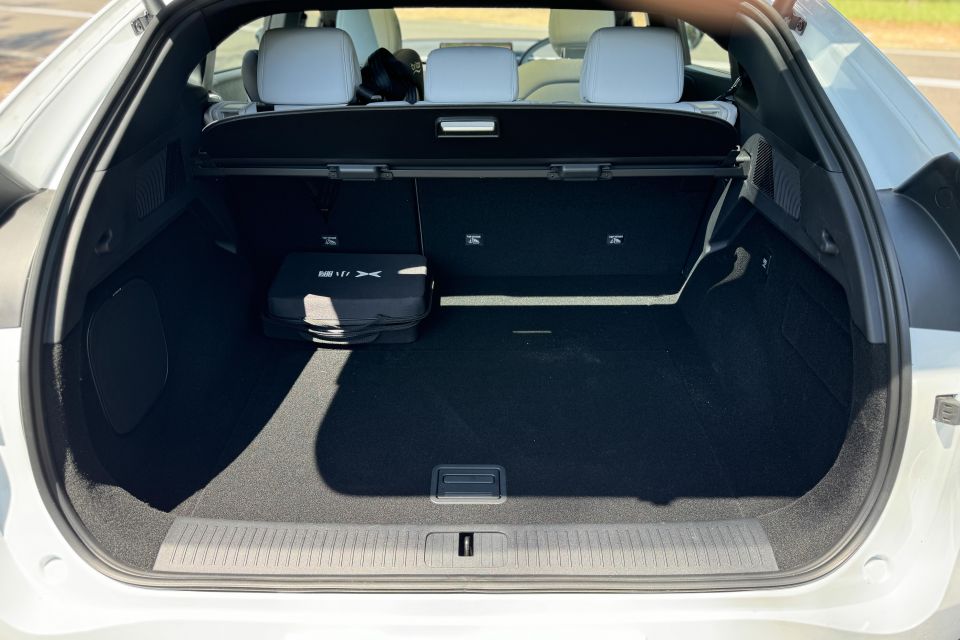
Boot space is very good, with a claimed 571 litres of cargo capacity with the seats in play, and a big under-floor storage area for the tyre repair kit – sadly, no spare tyre is offered here. There are also no shopping bag hooks, which is a shame.
Also worth noting on the storage front is that there is no frunk (front trunk) or under-bonnet storage space, despite the fact this is a rear-motor EV. Odd.
To see how the Xpeng G6 lines up against the competition, check out our comparison tool
As mentioned, you can’t get the G6 with a dual-motor AWD powertrain, and for some ‘SUV’ customers that could rule it out, as it is only offered in rear-wheel drive (RWD) form.
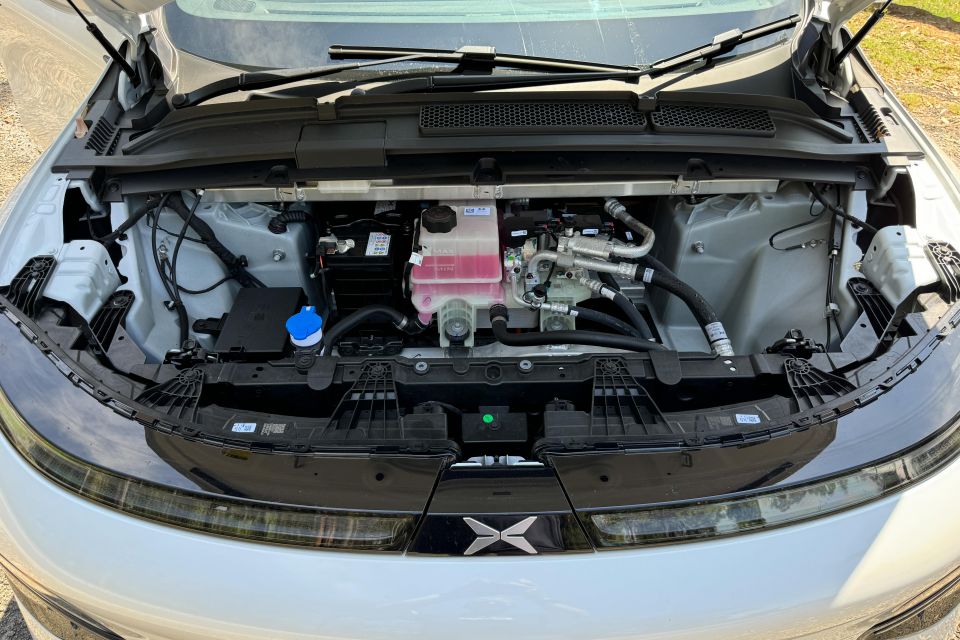
As with the majority of electric vehicles sold in Australia, it comes with a Type 2 CCS combination plug, with the charge port located on the driver’s side rear quarter of the vehicle, which could present a problem for street parkers.
So, how did it fare when it comes to range and efficiency in real-world driving? My testing comprised a mix of urban, suburban and rural driving, as well as a few longer freeway stints, and I saw a displayed average energy consumption of 15.9kWh per 100km, so 1.6kWh/100 better than the claim! I was impressed.
| Specifications | Xpeng G6 Standard Range | Xpeng G6 Long Range |
|---|---|---|
| Drivetrain | Single motor | Single motor |
| Battery | 66kWh LFP | 87.5kWh NMC |
| Power | 190kW | 210kW |
| Torque | 440Nm | 440Nm |
| Drive type | RWD | RWD |
| Weight (kerb) | 2025kg | 2025kg |
| 0-100km/h (claimed) | 6.6 sec | 6.2 sec |
| Energy consumption (claimed) | 17.5kWh/100km | 17.5kWh/100km |
| Energy consumption (as tested) | – | 15.9kWh/100km |
| Claimed range (WLTP) | 435km | 570km |
| Max AC charge rate | 11kW | 11kW |
| Max DC charge rate | 215kW | 280kW |
To see how the Xpeng G6 lines up against the competition, check out our comparison tool
It is one of the better examples in the electric SUV class in terms of the driving experience, and some of that comes down to the calibration of the safety systems.
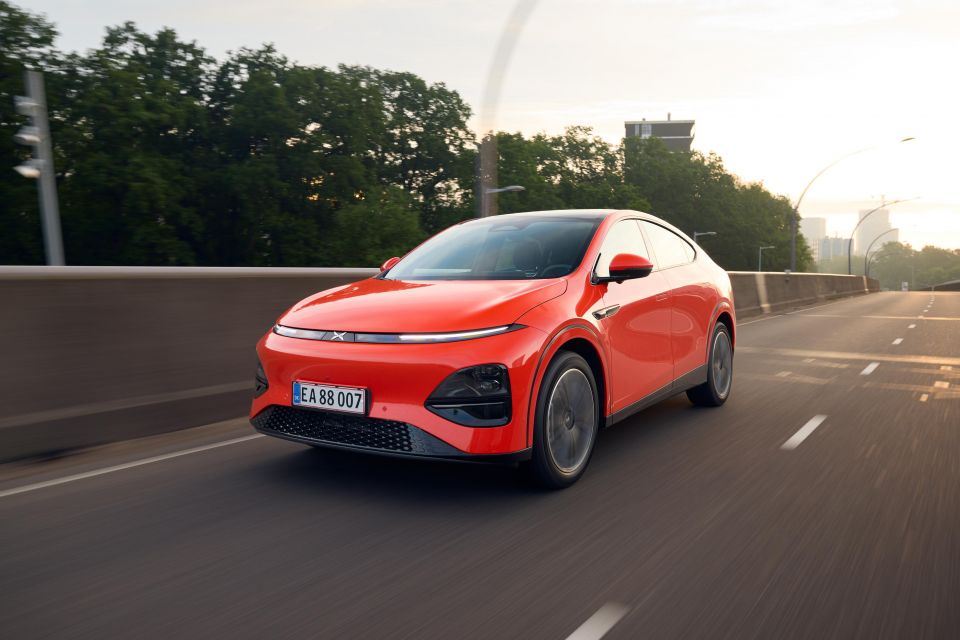
While some competitors can frustrate drivers with their incessant warnings cued by driver monitoring camera systems and speed sign interpretation technology, the Xpeng is one of the better measured vehicles in its nannying, with far less of that infuriating binging and bonging than in other cars.
It still makes a bit of a song and dance if you’re not paying attention, and there are chimes that will get in the way of a ‘pure’ driving experience, but it is, on the whole, not bad.
Oh, apart from the warning that you’re driving too close to a truck or ute, when there’s nothing you can do about that… and the tailgating prevention warning that will flash the hazards if a car is approaching you too fast from behind. That could in fact lead to road rage in some instances, one could posit.
The adaptive cruise control is a little lenient in its gap-keeping, but there’s the more advanced smart cruise control system that will stop, start and steer for you, and even change lanes if you want it to.
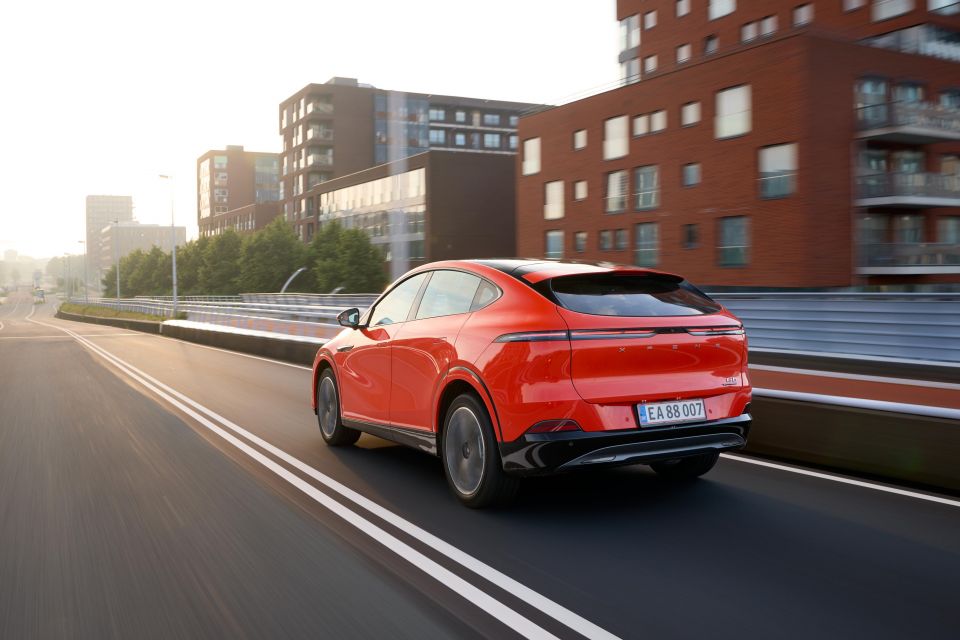
There’s an automated parking system as well, which can remember particular locations and know that you’re going to want to park there – neat technology.
The camera system for parking is also top-notch, with multiple view modes and a 3D augmented reality view if that’s what you like. Plus there is a built-in dashcam system, and it has a Sentry mode like a Tesla, so the cameras can keep an eye on the car when you’re not around, and record any triggers.
Beyond the tech, the drive experience is generally a positive one.
It’s certainly a decent handling electric SUV, with that rear-wheel-drive ‘push you from behind’ feeling that enamours it with a more enjoyable character if you’re pushing the car through a series of bends.
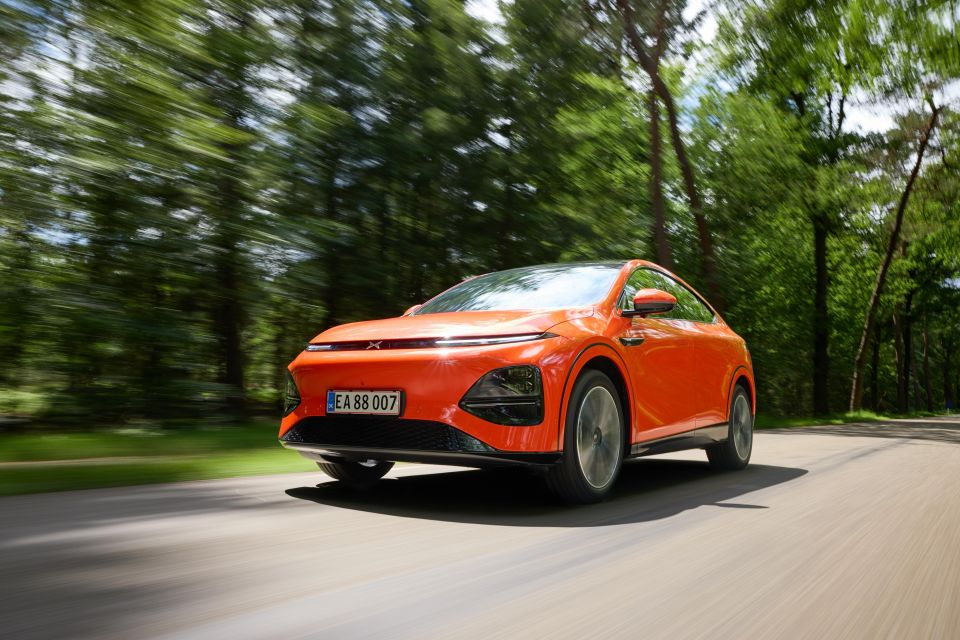
Sadly, it doesn’t have the most thrilling steering feel, and the steering wheel shape is a bit odd, so you mightn’t love pushing it through the esses on your local drive route. But it is predictable enough and easy to pilot in and out of driveways and car spaces, if you’re doing the job yourself.
The biggest talking point for the drive experience is ride comfort, which you might find to be too firm for your tastes.
Being an EV with a large battery under the body of the car, there is additional stiffness to keep the body rigid, and the standard 20-inch rims with low-profile Michelin Pilot Sport EV tyres (225/45 R20) certainly pick up on little sharp bits in the surface.
But more generally, it delivers a firmer on-road experience than some competitors – not unsophisticated, but certainly not as plush as, say, a Skoda Enyaq.
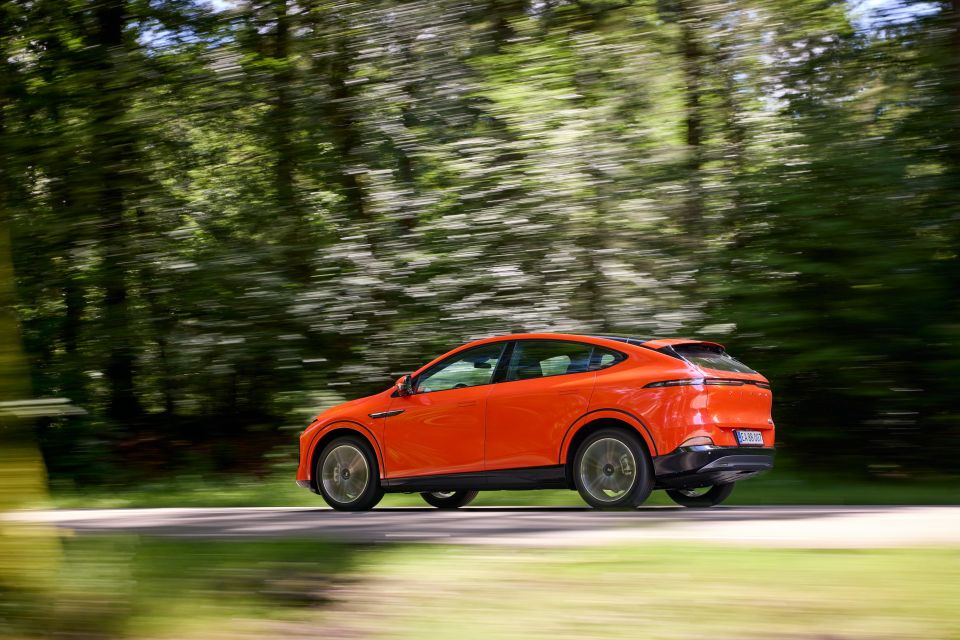
It’s not the fastest EVs in this segment, but it’s not giving off the vibe that it wants to be a performance flagship, either. It’s quick enough when you plant your foot, and if you engage the Sport drive mode you will get more of a thrill out of it.
At launch, the G6 is a RWD-only affair, but there is an all-wheel drive, dual-motor variant with a bit more zing to it in China, and it’s expected to arrive here sometime later this year. The performance of that version includes a sprightly 0-100km/h acceleration time of 4.1 seconds, as opposed to 6.6 for the Standard Range and 6.2 for the Long Range tested here.
For my test, I was more than happy to leave the G6 in its normal driving mode, though I did fiddle with the steering modes, and the regenerative brake response system has four settings to pick from as well.
There is no full ‘single pedal’ driving mode that will bring the car to a complete halt, but it does have an assertive ‘max regen’ mode that slows the car down to a crawling pace of 2km/h or so.
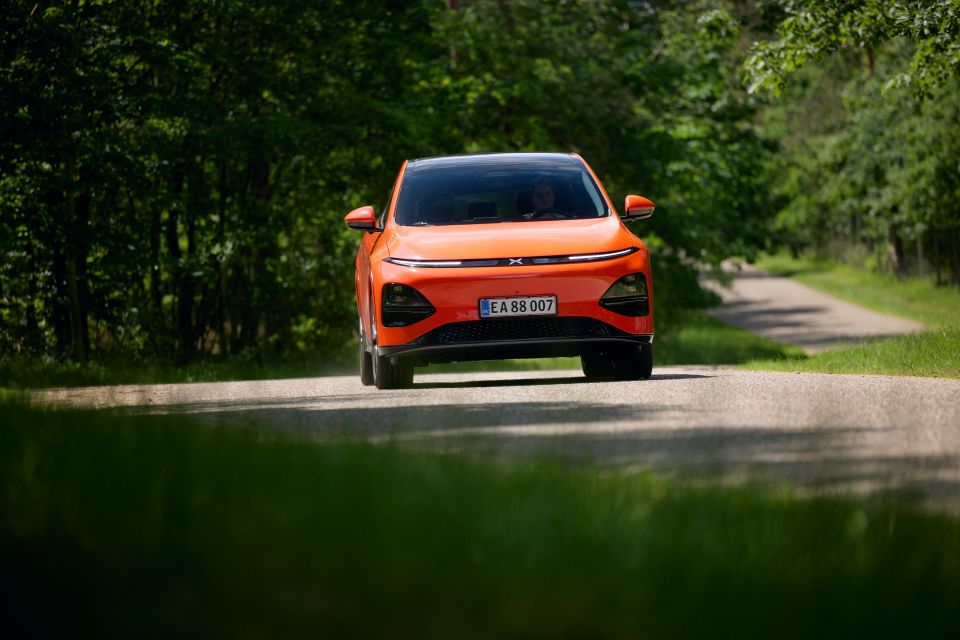
Where expert car reviews meet expert car buying – CarExpert gives you trusted advice, personalised service and real savings on your next new car.
Brake pedal feel is quite good, with a natural responsiveness to the pedal. But the accelerator can be a little twitchy at times, so practice those ankle stretches to ensure you’re not hammering the gas harder than you want.
In general, the drive experience is very agreeable, and there is a pedestrian warning system that can alert those outside the car that you’re nearby via a very futuristic symphonic sound from an outside speaker.
Inside, though, it’s mostly quiet, aside from a little bit of road noise intrusion on coarse-chip surfaces. And you need only turn up the standard 18-speaker stereo to get past that!
To see how the Xpeng G6 lines up against the competition, check out our comparison tool
Standard equipment levels for the Xpeng G6 are generous, with both grades offering identical inclusions.
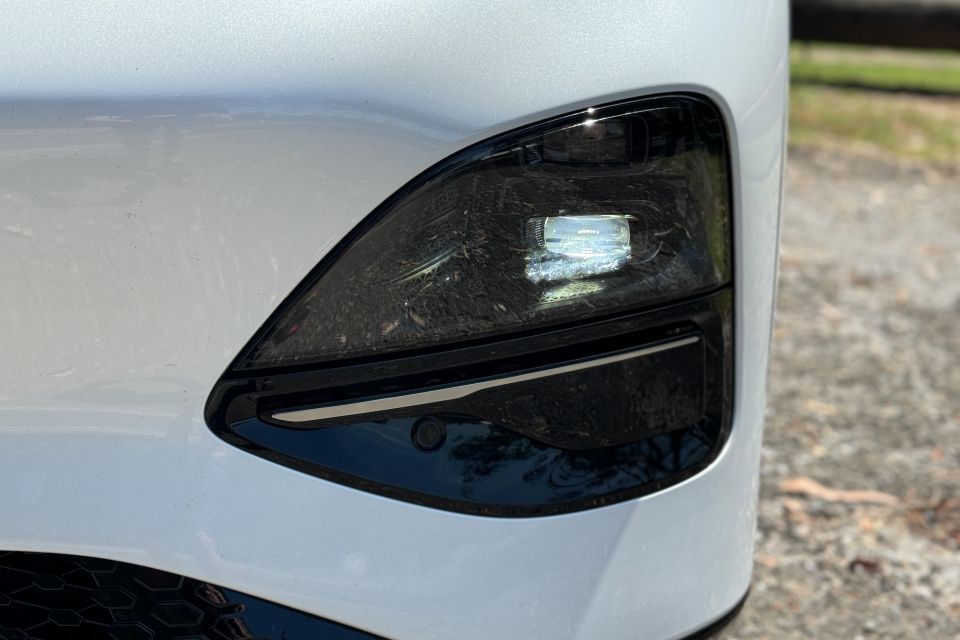
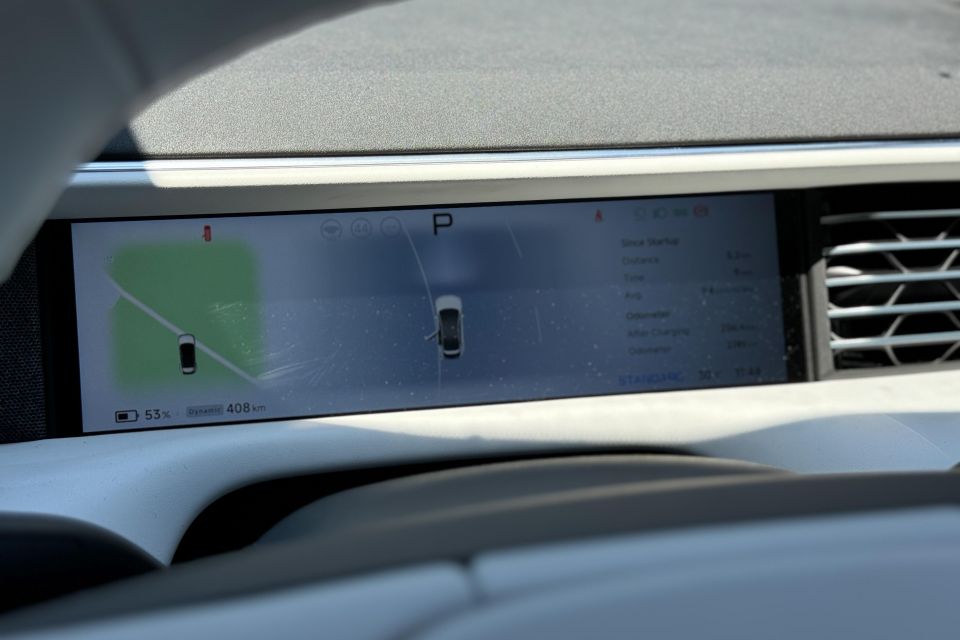
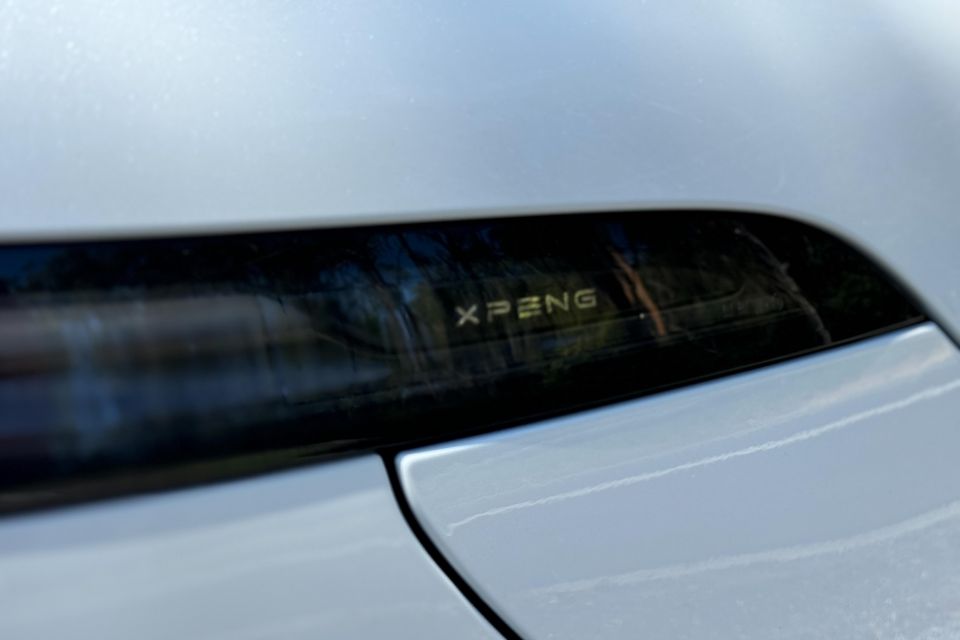
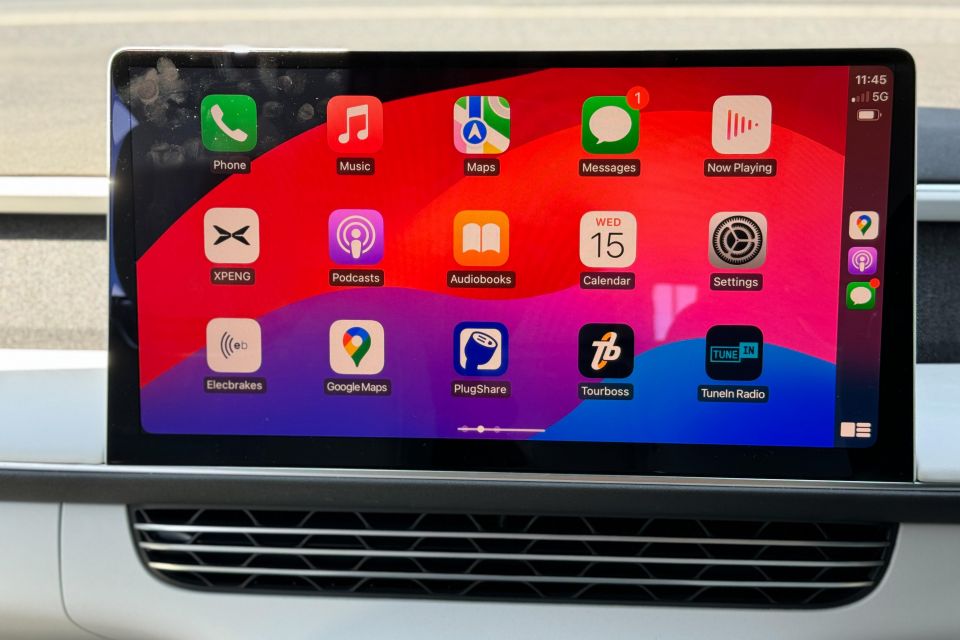
2025 Xpeng G6 equipment highlights:
To see how the Xpeng G6 lines up against the competition, check out our comparison tool
It has a five-star ANCAP rating from 2024, so yes, by that measure it’s a safe car.
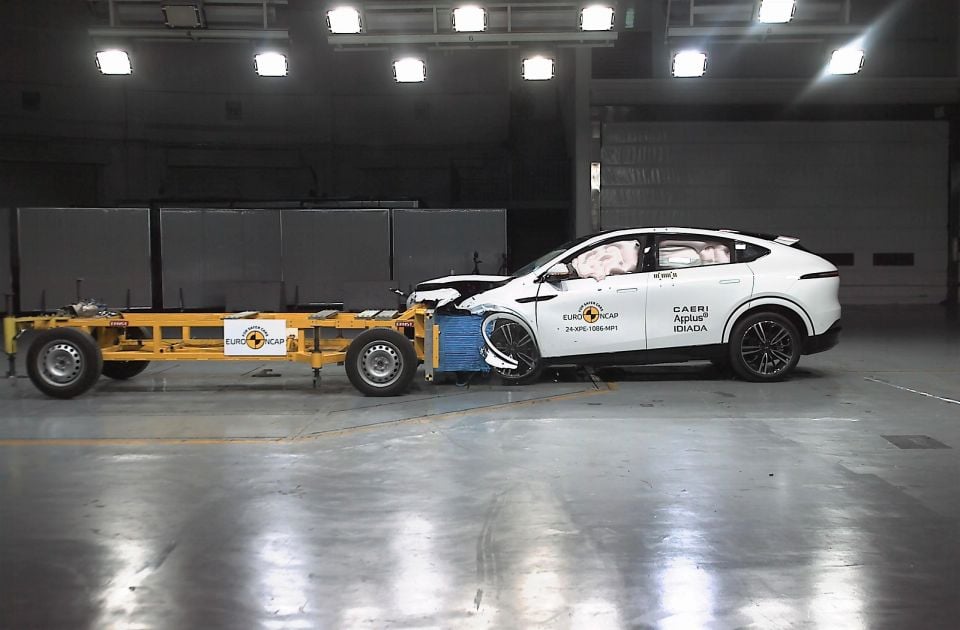
| Category | Xpeng G6 |
|---|---|
| Adult occupant protection | 88% |
| Child occupant protection | 86% |
| Vulnerable road user protection | 81% |
| Safety assist | 80% |
Standard safety equipment includes:
The safety technology is certainly some of the better calibrated that I’ve tested in a new EV from China, but it’s still not perfect, being overly insistent with the lane-keeping nudges, and with warnings for things you cannot avoid. For instance, it warned me to “move away from the large vehicle” when driving alongside a truck in a tunnel… I couldn’t do that, obviously.
It also seemingly had an overactive rear collision warning system – which will beep inside the car and flash the hazard lights if something is approaching fast from behind. But in Sydney’s, er, less-than-courteous traffic, this triggered a few times due to tailgaters.
To see how the Xpeng G6 lines up against the competition, check out our comparison tool
If you get in quick (or got in quick, depending on when you’re reading this), you might have got a great deal on the ownership front for the G6.
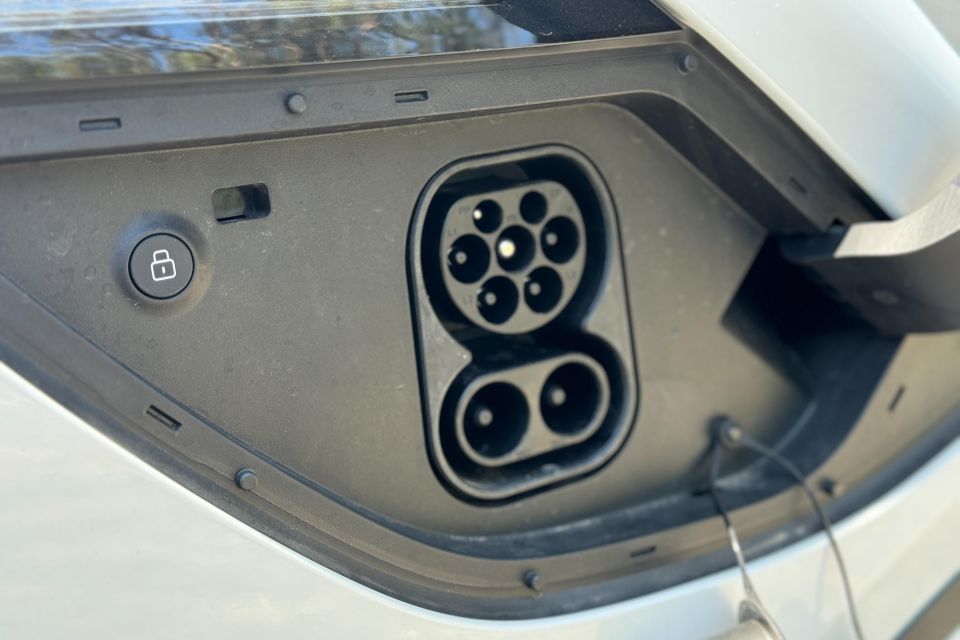
That’s because it was initially being offered with a 10-year warranty for the vehicle and the battery.
But if that doesn’t stick around as a permanent promotion, the standard ownership details are a little different.
The vehicle warranty is five years, 120,000km (whichever occurs first), while the powertrain including the battery and electric motor is covered by an eight-year, 160,000km warranty.
But even if you miss the promo deal, you can add longer warranty cover to your G6, with up to 10 years/220,000km available for the car itself, and for the powertrain separately.
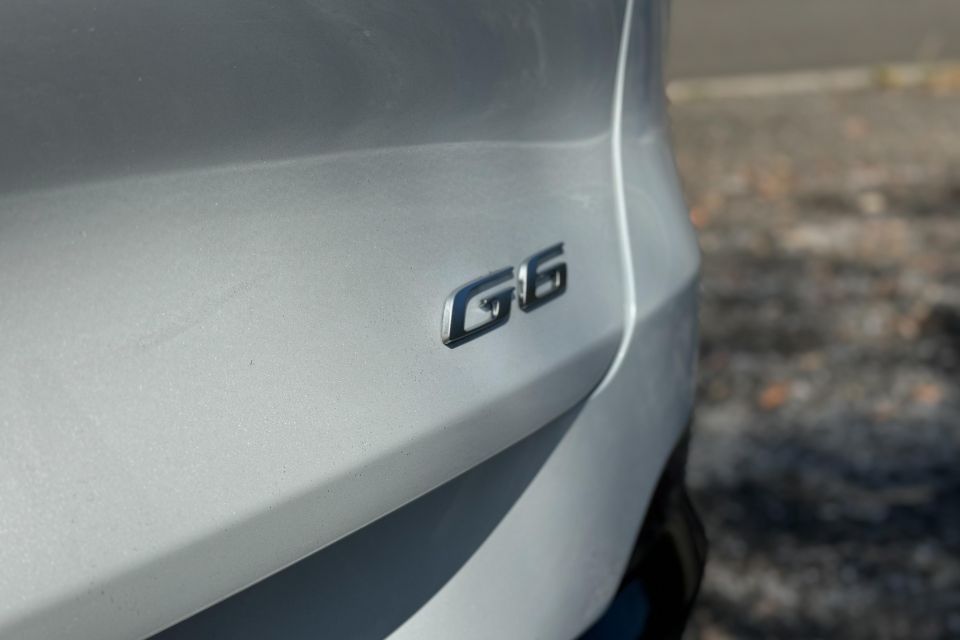
Service intervals are 12 months or 20,000km, which is fine but not as long as some other EVs that require maintenance only every two years.
The average service cost over the first five years/100,000km is $412. The service program is aligned with Ultra Tune in Australia, which has a big network of workshops, but is that a ‘premium’ enough experience for a brand with posh aspirations like this?
To see how the Xpeng G6 lines up against the competition, check out our comparison tool
This is the most compelling, sub-$60k electric family SUV on the market that I’ve driven so far.
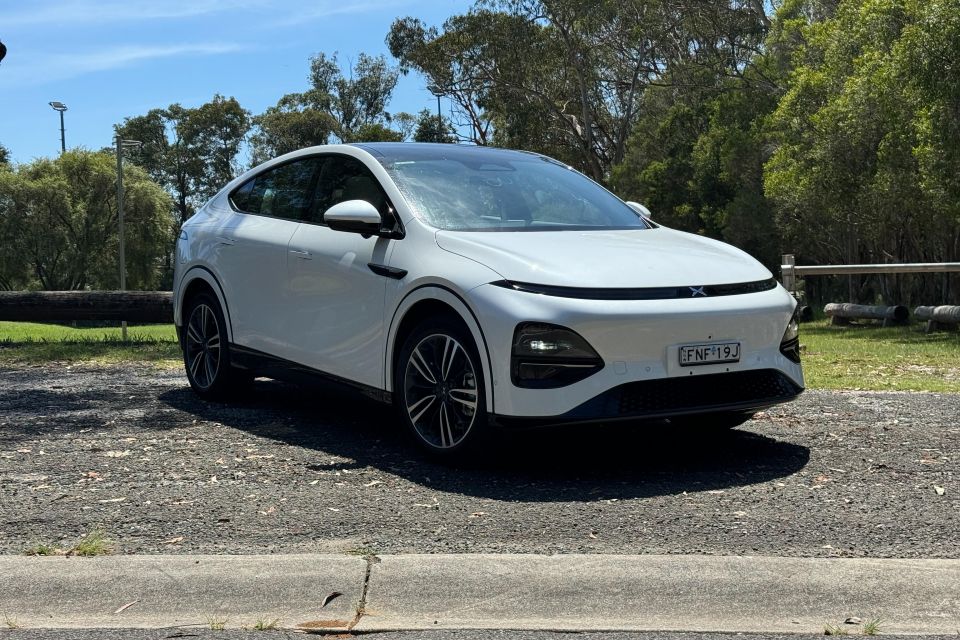
It feels more complete than many of the others in the ‘budget’ arena, and offers a family-ready amount of space and features, making it a high-priority option to check out if you’re in the market for this kind of vehicle.
I for one can’t wait to see if the G6 remains near the top of the ‘look list’ as more new competitors arrive in 2025.
Interested in buying a Xpeng G6? Get in touch with one of CarExpert’s trusted dealers here
Click the images for the full gallery
MORE: Everything Xpeng G6
Where expert car reviews meet expert car buying – CarExpert gives you trusted advice, personalised service and real savings on your next new car.
Matt has more than a decade of experience in automotive journalism, and loves exploring the pros and cons of new cars, delving into deep-dive industry stories, and going for a drive just for the fun of it.


Andrew Maclean
1 Month Ago
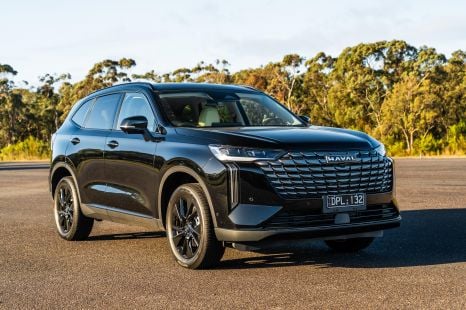

Josh Nevett
28 Days Ago
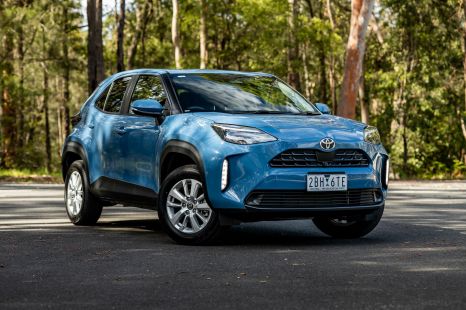

Matt Campbell
22 Days Ago
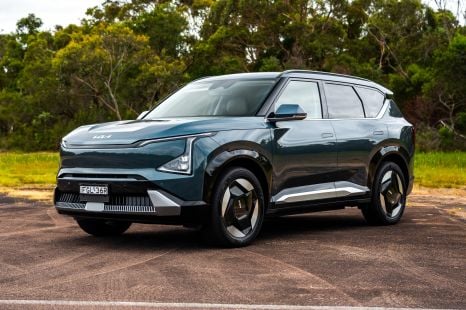

James Wong
15 Days Ago
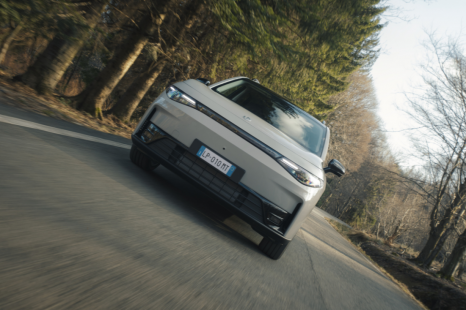

William Stopford
14 Days Ago
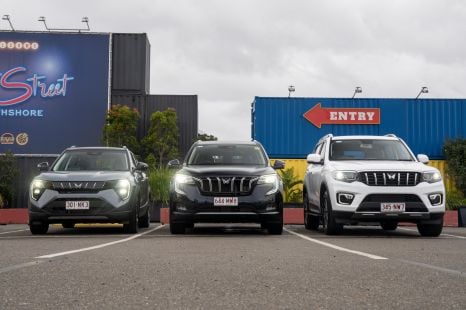

CarExpert.com.au
8 Days Ago